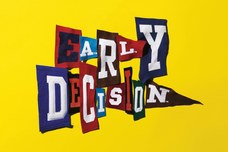 Image credit: Teen Vogue Image credit: Teen Vogue What is Early Decision II (ED II)? Early Decision II, similar to Early Decision I, is a binding commitment -- if you are admitted, you promise that you will attend. Once admitted, you must withdraw all other applications. Typically, ED II deadlines are the same as a school's Regular Decision deadline (though in some cases, i.e. Grinnell College, it can be earlier). What types of students should consider ED II? Early Decision II can be a great option for several types of students: -Students who were not admitted to their Early Decision I or first-choice Early Action school. You should hear from most Early Decision I and Early Action schools by mid-December, and most ED II applications are due in early January. -Students who only recently decided that a particular school is their top choice. You may not have been ready to commit by the ED I deadline but are now sure this is the right school for you. -Students who did not apply ED I because they were waiting for fall test scores or grades to bolster their applications. You are now a better candidate. Does every school offer ED II? Early Decision II is offered at many small liberal art schools that also offer ED I, and more schools are adding this option every year. Here is a good list of schools with ED II, but always check a school's website to confirm. According to a 2015 New York Times article: “Of the more than 625 colleges that use the Common Application, about 30 percent offer E.D. I; 13 percent offer both E.D. I and II. Among the latter are selective liberal arts colleges (Colby, Pomona, Swarthmore) and small private universities (Brandeis, Emory, Vanderbilt). But hardly any publics offer E.D. II., and no Ivys.” Does ED II carry as much weight as ED I? Applying early and making a binding commitment to a school nearly always improves your chances of being admitted. Many schools report their Early Decision statistics without distinguishing between ED I and ED II. But anecdotally, it is typically (at least slightly) more advantageous to apply ED I. For example, for last year’s freshman class, Hamilton College accepted 42 percent of ED I applicants and 32 percent of ED II applicants. Hamilton’s regular decision acceptance rate was 23 percent. What if I already submitted my application? Can I change it to ED II? In many cases, a school will allow you to convert your regular application to ED II, if you submit the required forms. Contact the particular school for details on how to proceed. Some schools will even allow this after the deadline has passed, if they have not yet reviewed your application. Can I apply ED II to the same school if I was not accepted in the ED I round? No. Once a decision has been made on your application, you may not apply to the same school until the following application year. When will I receive a decision? This varies by school, but many ED II deadlines are in January and decisions are released in mid to late February.
0 Comments
We thought we'd post some fun facts to distract you from the stress of finishing college applications, studying for finals, and waiting for Early Decision results!
Did you know that.... Duke University loves monkeys! Established in 1966, the Lemur Center in Duke Forest is the world’s largest sanctuary for rare and endangered prosimian primates. The Indigo Girls, Amy Ray and Emily Saliers, chose their band name while students at Emory University in the mid-1980's. Both were English majors and transfer students, and they frequently return to campus for homecoming concerts. Can't bear to leave Fido home? Eckerd College in St. Petersburg, Florida, is one of the only colleges to have pet-friendly dorms. They even have a separate graduation ceremony for outgoing pets. The University of South Carolina is home to the state's only 360 degree rotating restaurant, Top of Carolina. USC's campus also hosts the National Advocacy Center, a centralized training center for the U.S. Department of Justice. Agnes Scott College, a tiny (but beautiful!) all-women school 6 miles east of Atlanta, has been the setting for numerous movies and TV shows, including Driving Miss Daisy, Scream 2, and The Blind Side.  Many schools give applicants the opportunity to interview with local alumni as part of the application process. In some cases, this is offered to all applicants, while others require applicants to follow specific procedures. For example, if you want “priority consideration” for an interview with a Duke alum, you need to submit your Regular Decision application earlier than normal - by December 20. At Carnegie-Mellon, you need to search the alumni directory and submit a request online. Be sure to check specific instructions for each school on your list. Alumni interviews typically occur in a public place like a coffee shop, and are generally low-key and conversational. Be sure to come prepared with questions for the interviewer, and do your homework to show you are excited about the particular school. Basic etiquette rules always apply – dress appropriately (suits are not required, but no ripped jeans or sneakers!), be on time, turn off your cell phone, and send a thank-you note. It never hurts to do a practice mock interview with a counselor or a parent! For some great insight on what questions interviewers typically ask, and what they are looking for, check out this recent article from Business Insider: “A former Harvard admissions interviewer shares the 5 questions she asked almost every applicant.”  Interested in learning more about Jewish life on campus? At the recent Independent Educational Consultants Association Conference in New Orleans, we presented a program called "Lox-a-Options: The Search for Jewish Life on Campus." Click here to view the conference handout, which has links to suggested resources and a list of questions to think about when visiting schools. We just returned from a professional conference in New Orleans, and had the opportunity to visit Tulane University. Did you know that...
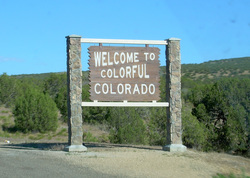 We enjoyed having breakfast this morning with admissions representatives from CU-Boulder, Colorado College and University of Denver – three exciting yet distinct college options in the beautiful state of Colorado. Here are a few fun facts we learned: CU-Boulder -Their new recreation center features an outdoor pool shaped like a buffalo. -The highly regarded Aerospace Engineering program has graduated 18 astronauts. -A new major, Technology, Arts & Media, is housed in the Engineering School. Students in this major and others can spend time in the BTU (“blow things up”) lab. University of Denver -Located 7 miles south of downtown Denver, the University has an equal number of undergraduate and graduate students (roughly 5,500 each) and operates on a quarter system. -64% of last year’s freshman class came from over 500 miles away. University of Denver is about 30% in-state and 10% international. -University of Denver has a strong “Learning Effectiveness Program” geared towards supporting students with learning differences. Colorado College -Colorado College operates on a “block plan” where students take one course at a time. Every class is capped at 25 students. -The Baca campus is located 175 miles southwest in the mountains and serves as a “distraction-free space for reflection and enhanced learning.” -The school has very recently entered into a partnership with the nearby Colorado Springs Fine Arts Center, which will become a part of the College after several years of transition. 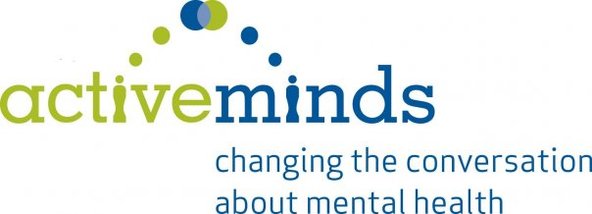 Did you know this is suicide prevention month? Vinik EPS is proud to support Active Minds, a non-profit organization that serves as the voice of young adult mental health advocacy nationwide. We see firsthand all of the stress facing teenagers these days and we applaud their efforts to destigmatize mental health issues. Alison Malmon, originally from Potomac, MD, founded the organization when she was a junior at the University of Pennsylvania, following the suicide of her older brother, Brian. With more than 400 campus chapters, hundreds of thousands of young adults all across the country are benefiting from the Active Minds model which works to combat the stigma of mental illness and encourage students who need help to seek it early. Laura Hosid serves on the Host Committee for the Active Minds Casino Night fundraiser, and Vinik EPS has donated a college counseling package to the silent auction. If you are interested in learning more or joining Laura at the Casino Night (October 8th at Woodmont Country Club in Rockville, MD), please visit www.activeminds.org.  by Bruce Vinik More than 6,000 professionals from the US and around the world have gathered in Columbus, Ohio for three days to take stock of the state of college admissions. It's where the Dean of Admissions from an Ivy League school can rub shoulders with a public high school guidance counselor from a small town in the Midwest. They are here to talk about all things college admissions, from recruitment strategies and standardized testing to high school advising and helicopter parents. On Thursday afternoon, I attended an educational session titled How Numbers Are Used (and Misused) in the Admissions Process. The presenters included a couple of high school college counselors, one independent counselor and Jon Boeckenstedt, the Associate Vice President of Enrollment from DePaul University. Within the world of college admissions, Jon is regarded as a numbers guru, someone who uses data to try to understand the intricacies of the college admissions landscape. The basic takeaway from the session -- pay attention to the right numbers, not the wrong numbers. The wrong numbers include all the different ranking systems that are out there, from US News and World Report to Forbes -- the data they use to formulate their rankings is arbitrary and misleading. The right numbers include data that individual colleges publish about their own admissions decisions. These numbers tell an important story. The panelists made one particular point that stuck with me, not because the point is new but because it reinforces something we tell parents and kids all the time. In getting into selective colleges, the difference between early decision and regular decision is often enormous. Most schools accept a much higher percentage of early decision applicants than regular applicants. It's not unusual for colleges to admit one out of four regular students vs two out of four ED students. That's a big difference and one that kids and parents need to think about seriously. The panelists were not passing judgment about the ethics of early decision; they were simply urging counselors to urge families to pay attention to the right numbers. 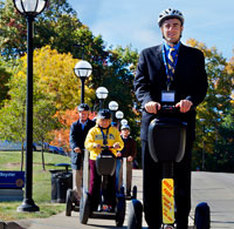 Touring Univ. of Michigan by Segway Touring Univ. of Michigan by Segway If you've been on at least one college visit, you know the standard drill - go to the school's website and sign up for an information session given by the Admissions office, followed by a student-led tour. Anyone who has attended more than one campus visit probably knows all about blue-light phones, meal plans and quidditch teams! (If you get bored on your next trip, spice things up with this college tour bingo game). But what if you have a special interest or want to know more than just the basics? There are some colleges out there offering unique options to help give prospective students a more in-depth view of what it is like to study at their schools. Here are a few fun options! Are you a runner? At the University of Oregon, you can join student ambassadors on a 3.7 mile tour of running trails around campus. The students run at a "comfortable pace" and stop frequently to point out University of Oregon landmarks. Running tours are offered at 8:30 a.m. the first and third Friday of each month. Prefer biking? During warmer months at Portland State (PSU), you can take a 3.5 mile bike tour around the main campus with multiple stops at Portland State landmarks. PSU provides the bike! Beach bum more your style? Eckerd College in Florida invites prospective students to Sunday night cookouts on the beach at its "South Beach Supper Club." Get to know current students while relaxing on Eckerd's waterfront campus. Play an instrument? At Sewanee (University of the South), you can have dinner with the Sewanee Symphony Orchestra and participate in a dress rehearsal for the last concert of the season. After you register and send them a YouTube video of you playing your instrument, they'll send you electronic copies of music to practice for the dress rehearsal. Other "Behind the Scenes" tour options at Sewanee include Art, Theatre, and Choir. Like to make things? Case Western Reserve University offers tours of its "maker space," the Sears think[box]. This new facility is a hub of innovation and entrepreneurship providing space for students and community members to tinker away. Interested in Jewish life? The University of California, Berkeley Hillel offers a student-led tour highlighting Jewish student life at Berkeley. You can contact them to set up a tour, or download a "Jewish Campus Tour" map. Good off-campus dining options a must? Supplement your campus visit at University of Wisconsin with a Madison food tour. Or check out the Taste of New Haven after your tour of Yale University. Excited about research? At Allegheny College, you can sit in on weekly research presentations during the summer. At this interdisciplinary forum, students present short overviews of their summer research projects every Tuesday afternoon. Always wanted to try a Segway? During the spring and summer at the University of Michigan College of Engineering, prospective students can tour North Campus via a Segway tour. A brief training and a waiver are required! Art buff? Landmarks, The Public Art Program of The University of Texas at Austin, offers unique art tours that provide a fun and informative way to learn about works of art in the Landmark collection while enjoying the beauty of UT's main campus. There are nighttime tours, dog tours, and a self-guided interactive option you can download. For more ways to make college trips fun and tailor campus visits to your interests, check out our new Get U Going campus tour planning service!  It is almost July, and essay questions for rising seniors are starting to trickle out. Here are a few that have been released recently:
|
Categories
All
E-mail us at [email protected]
to learn more about our college, graduate school or career services. |
Vinik Educational Placement Services, Inc.

Vinik Educational Placement Services, Inc. * 4701 Sangamore Road, Suite S105 * Bethesda, MD 20816
301-320-9711 * [email protected]
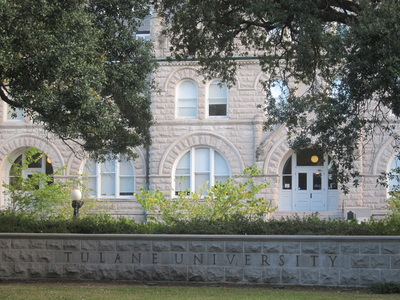
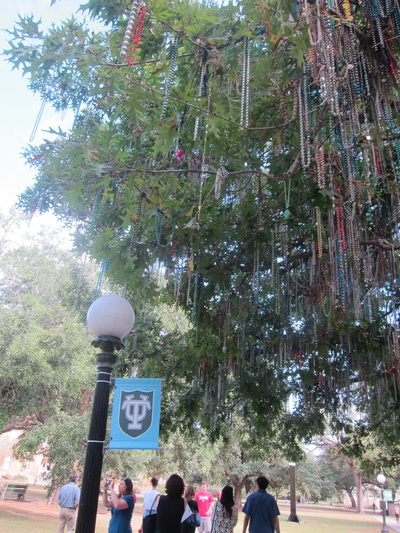
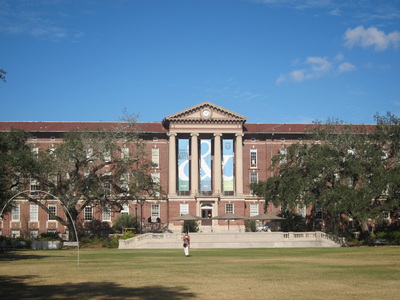
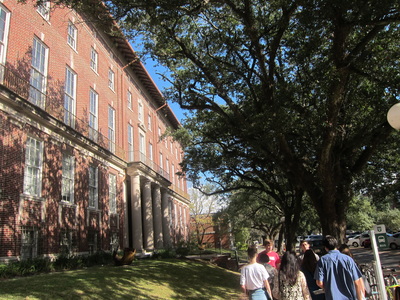
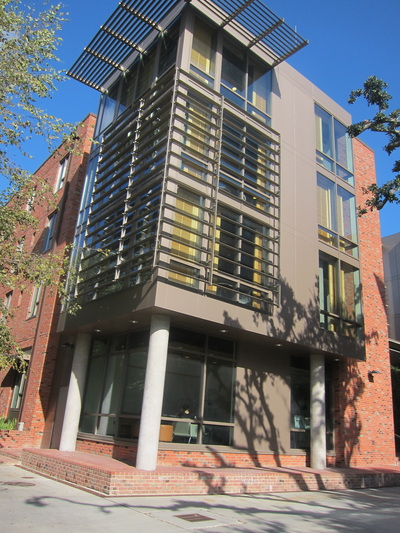
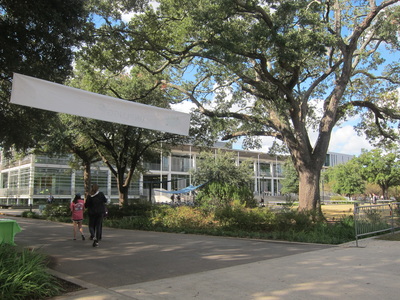
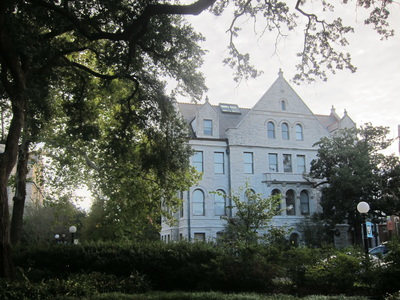

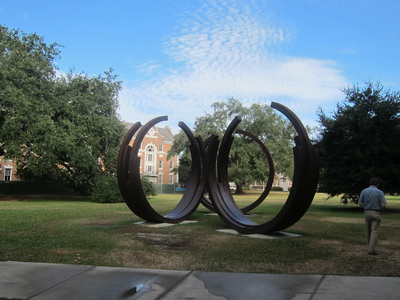
 RSS Feed
RSS Feed